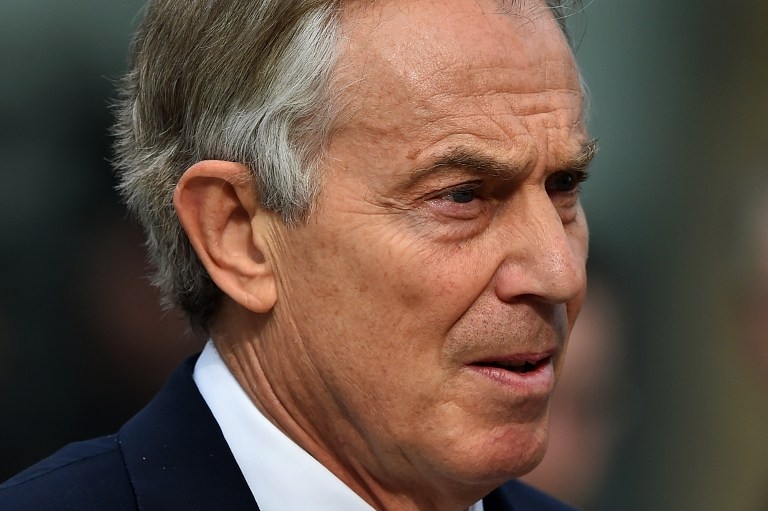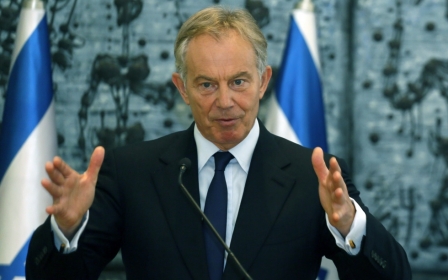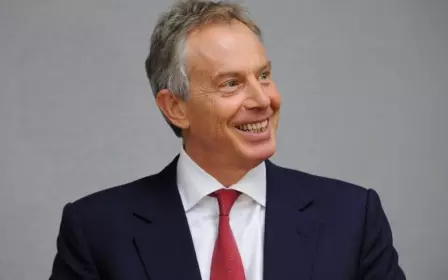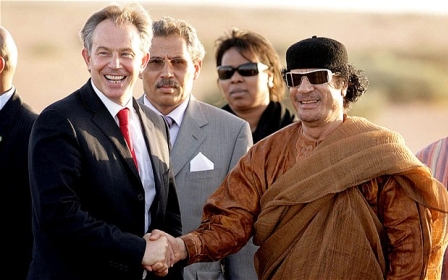Book Review: The world of Tony Blair: Power, wealth and secrets

Blair Inc. The Man Behind the Mask
by Francis Bennett, David Henke, Nick Kochan
Published by John Blake Publishing Limited, London 2015 (ISBN: 9781784183707, Release Date: 9 March 2015)
No British Prime Minister, and few international statesmen, have had such a successful, controversial and varied path as Tony Blair. Since departing office on 27 June 2007, his roles have included a diplomatic envoy, a businessman, media commentator, a promoter of interfaith dialogue and philanthropist.
Eight years on, Blair’s entrée into the world’s elite political, business and celebrity circles seems undimmed. He mixes with presidents, dictators, oligarchs and billionaires in every continent. Yet barely a week elapses without Blair hitting the headlines often to a fanfare of criticism.
Strangely perhaps, despite numerous books on his ten years in power, there have been no attempts to chart his post-prime ministerial.
Most views about Blair remain shaped by his premiership. His role in the Iraq war in 2003 leads many in the US still to revere him whereas in the UK he is a divisive figure even within his own Labour Party. Typically attitudes to post-Downing Street Blair are therefore somewhat predetermined.
Messrs Bennett, Henke, and Kochan set out to investigate the Blair empire or as they term it, Blair Inc. Certainly it is worthy of investigation and assessment.
Tracking Blair’s burgeoning business dealings is nigh impossible, obscured by myriad front companies and a Trappist-like response from Blair’s various offices. Just who does Blair do business with? The authors collect a huge amount from publicly available sources – his roles with major global corporations such as JP Morgan - but the area of greatest interest is his work for states.
Since the book was written a document was leaked to the Sunday Times newspaper that claimed to be a draft pitch from Tony Blair Associates to the Emirati Foreign Minister. In it he claimed to have dealings with 25 states. Blair Inc deals with many of them, most of whom seem to win elections with more than 90 percent of the vote.
In the Middle East there was Kuwait, perhaps not surprising given Blair’s role in toppling Saddam Hussein. In central Asia Blair has been working with the leaders of Kazakhstan and Azerbaijan. Blair is increasingly involved in China and elsewhere in Asia perhaps Blair’s most controversial work may have been in Burma. In Africa, Blair has had no problems working with the likes of Paul Kagame in Rwanda or Laurent Kabila in the Congo. Most controversially perhaps were Blair’s murky dealings with the Gaddafi regime, and rightly the book has a whole chapter on this.
A question is just why does Blair do this. Does his reputation mean so little that he is prepared to lower himself to appear in a promotional nonsense video to President Nursultan Nazarbayev of Kazakhstan called “In the Stirrups of Time”. Most international statesmen would have seen this as degrading as well as damaging. Is it all about money? Certainly human rights rarely appear to be a priority for Blair.
All this means that Blair can live the life of those of those he has so frequently surrounded himself by. The authors claim that the Blair family now owns 36 properties, an impressive portfolio. He largely uses a personal jet, though the authors cite examples of these being lent out to him even by the late Libyan leader Muammar Gaddafi.
Yet picking though all of this what really matters to those involved in the Middle East is the chapter on his role as Quartet representative to the Palestinians. Blair the businessman can sign any legitimate deal he so wishes, but should he be able to do this whilst performing a senior diplomatic role in one of the world’s oldest and fiercest conflicts. The enrichment of the Blair coffers has been simultaneous with the crushing of the Palestinian economy that as envoy he is meant to build up. It begs questions as to how successful Blair has been over the eight years.
Does Blair even have the time and energy for the role? The authors claim Blair travels a third of the year, some of this to Palestine but much of it elsewhere. When he meets Middle East rulers, what comes first, his business contracts or his role as envoy?
Blair’s associations with prominent Israelis and their supporters is covered not least his friendship with Haim Saban. The American-Israeli billionaire has been a major benefactor to Blair’s charities but is also someone who openly boasts that he is a “one issue guy and my issue is Israel.” More examination of Blair’s overly close links to Israel is needed given an envoy’s absolute requirement to remain impartial.
The book also raises questions about commercial conflicts of interests arguing that clients of JP Morgan benefited from both the Gaza gas fields deal and the future of mobile phone operations in Palestine, both of which Blair had a role in. Blair denies discussing the deals with JP Morgan.
The book covers a huge amount of ground, a reflection of the diversity of the Blair imperium. Yet it is spoilt on several counts.
Throughout the work, the authors feel more like the counsel for the prosecution and the defence is on leave. This is Blair on trial but not a fair one. There is gossipy speculation on the state of the Blair’s marriage but its relevancy is more than questionable. Blair is entitled to some privacy.
In part Blair may be to blame. The authors pepper their account with how their inquiries are thwarted by Blair’s staff. Yet why would Blair’s team trust and work when two of the authors have already torn into his reputation in a previous book a decade ago.
There is a lack of detailed knowledge of the Middle East and Islam. No serious scholar would ever rely on the chairman of an extremist outfit such as Hizb Al Tahrir as a neutral commentator on Islam. This book quotes him four times as an independent source. The authors on two occasions mistakenly say that Ehud Barak was the Prime Minister during part of Blair’s time as envoy even though the Israeli has not returned to that role since losing in 2001. It begs the question of how many other errors are in this tome.
Overall the book has harvested largely from public sources a large amount of detail. It poses many questions but sadly answers too few of them. It is a modest start to assessing the world of Blair but leaves the reader craving a more complete and nuanced picture. That may only be possible when the man himself stops hiding behind the impenetrable array of companies and other fronts that only inspire greater speculation as to exactly who he does business with, on what terms and for how much? There is still some way to get behind Blair’s mask.
New MEE newsletter: Jerusalem Dispatch
Sign up to get the latest insights and analysis on Israel-Palestine, alongside Turkey Unpacked and other MEE newsletters
Middle East Eye delivers independent and unrivalled coverage and analysis of the Middle East, North Africa and beyond. To learn more about republishing this content and the associated fees, please fill out this form. More about MEE can be found here.




